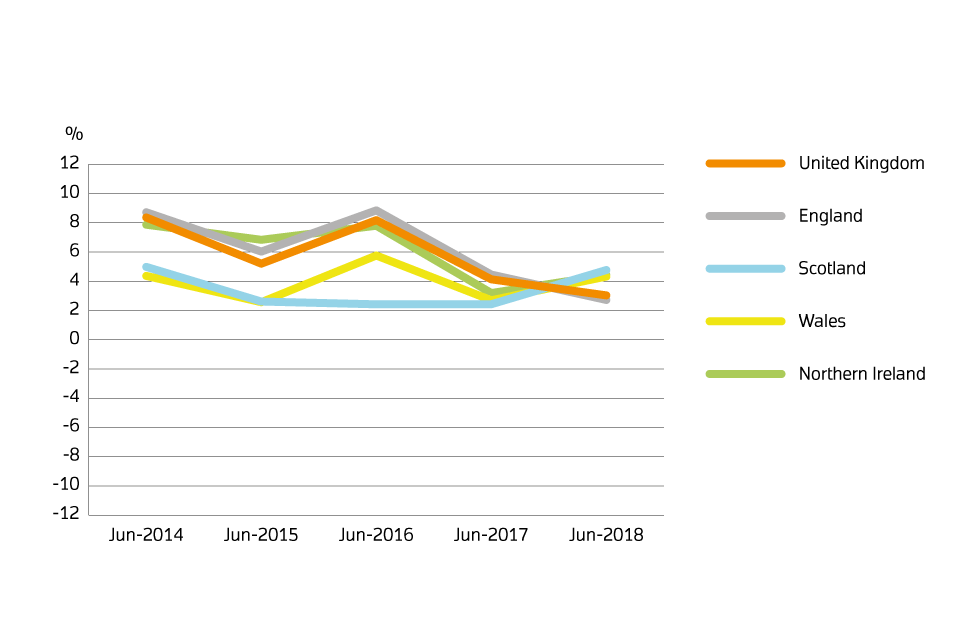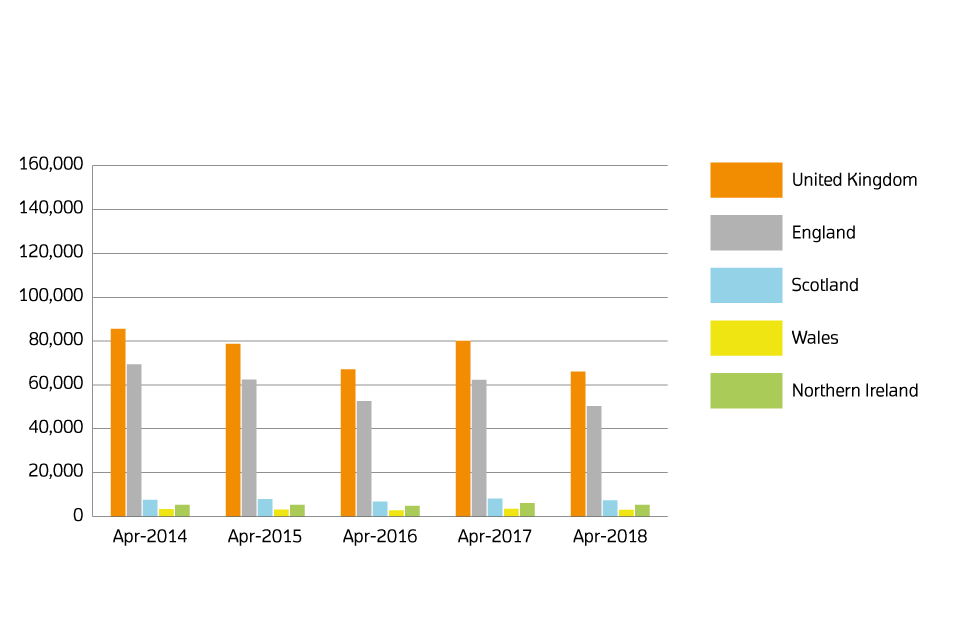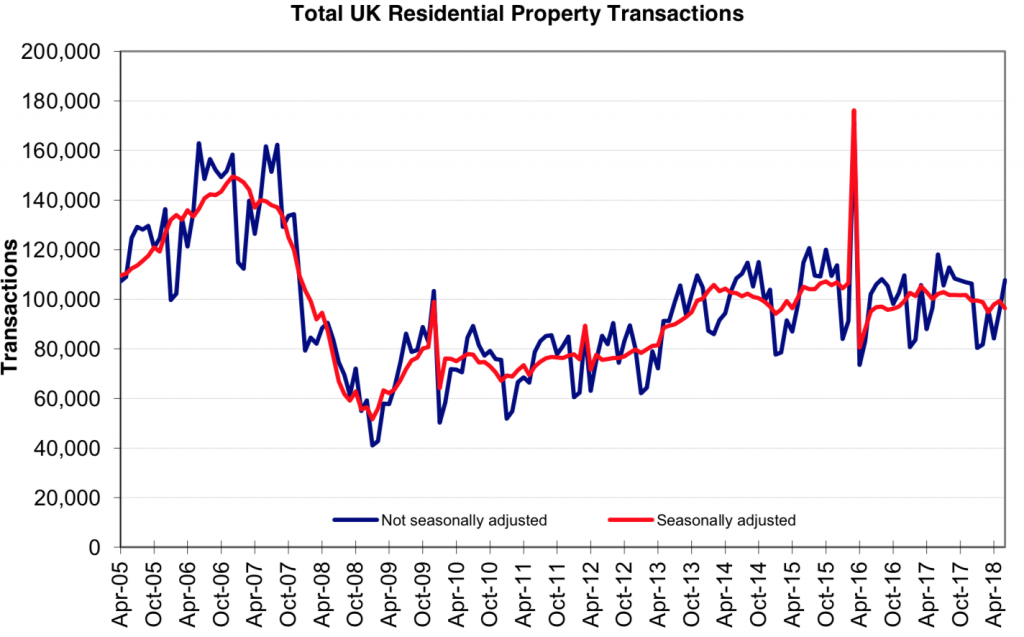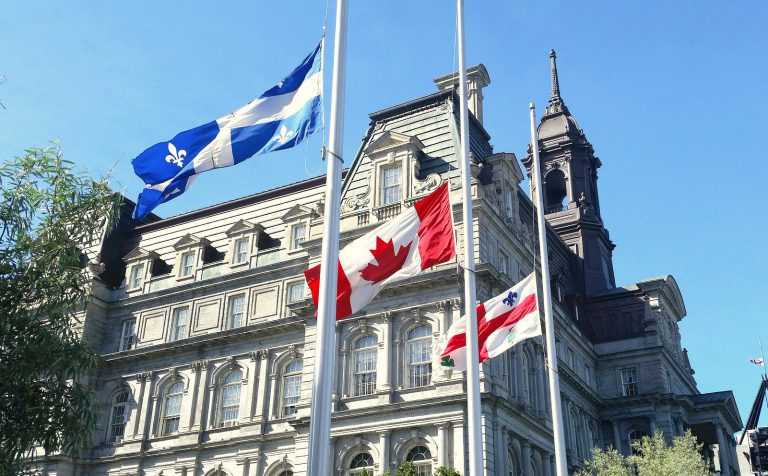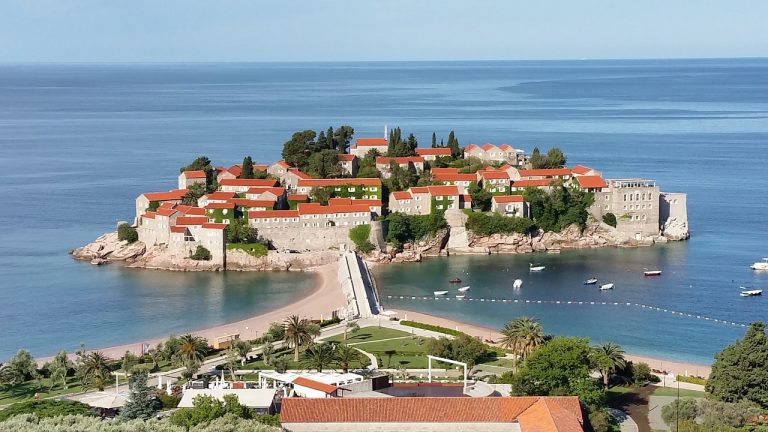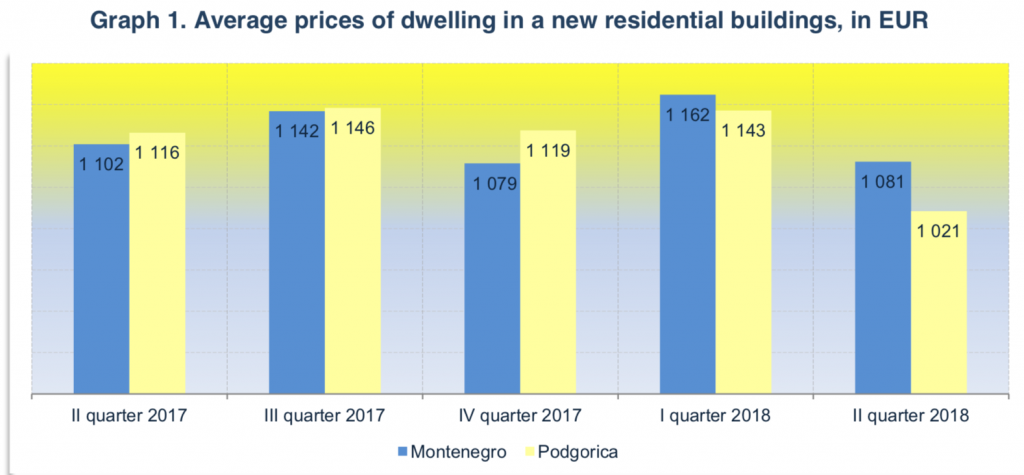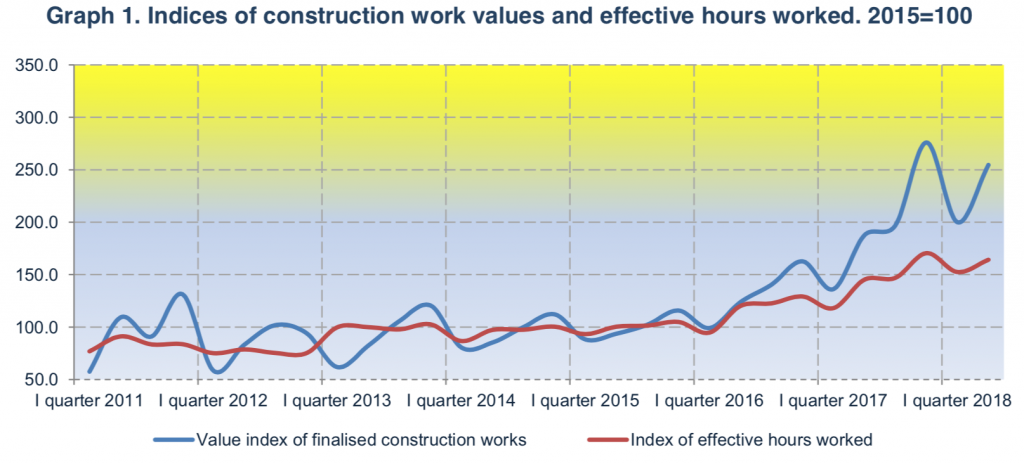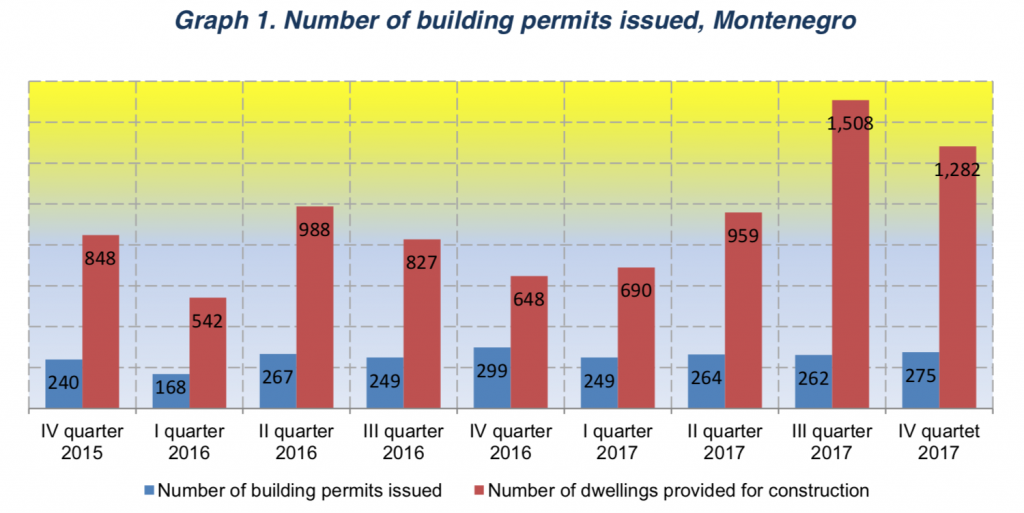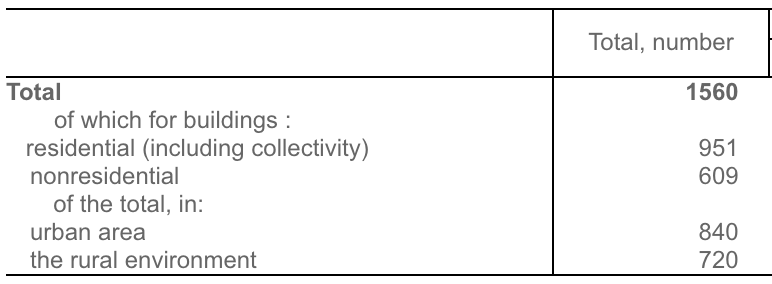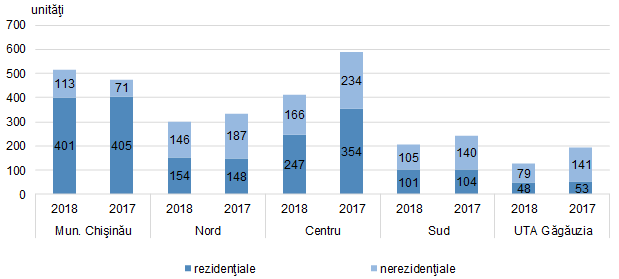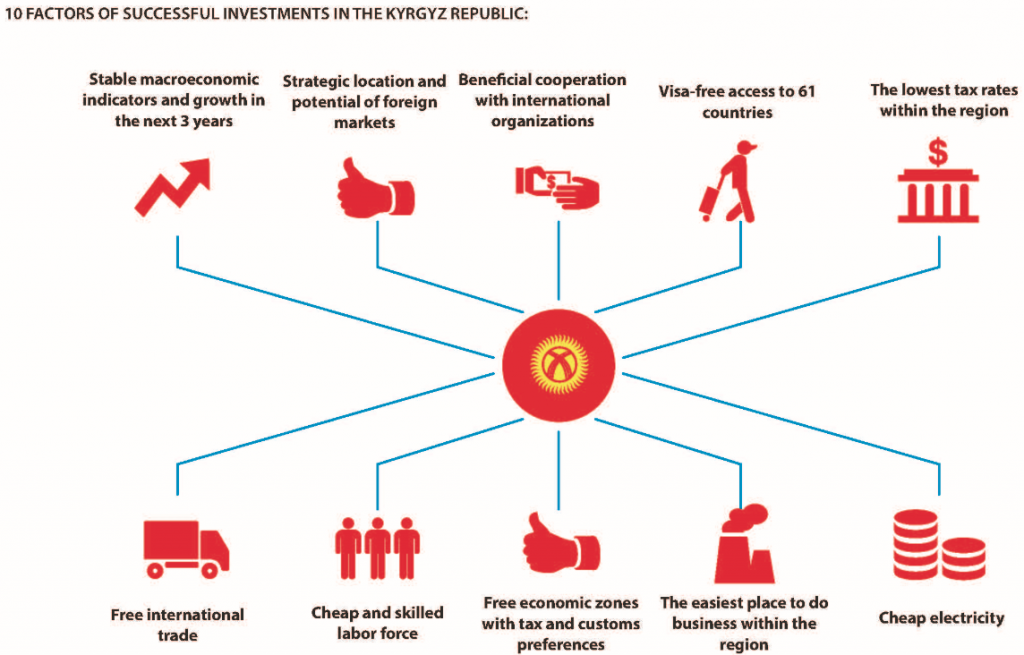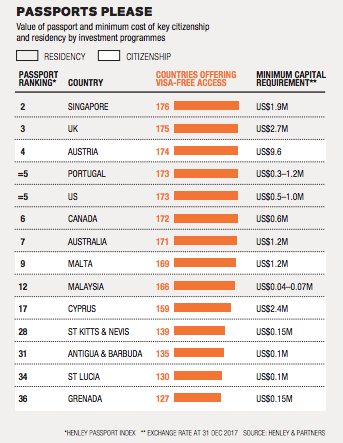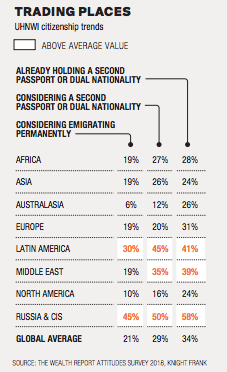Citizenship by investment programmes (CIPs) have come under attack for allegedly selling passports in a way that not only devalues citizenship but also threatens international security. Residence programmes have been similarly criticised.
Critics generally allege an absence of due diligence in the screening of would-be citizens and residents and are quick to publicise cases where due diligence may have fallen short and where international security may have been threatened as a result.
This report aims to demonstrate that while there have been occasional lapses, the norm is for due diligence to be taken seriously and for due diligence processes to be established and correctly followed. This report also aims to show that the vast majority of these programmes, which generate investments that lead to the creation of jobs for local citizens, were not only commenced with laudable objectives but are actually managed in a way that minimises threats to international security.
The programmes address the security risk by instituting robust due diligence processes which vet applications for citizenship and residence. The report recognises the temptation faced by political players to overlook applicants’ apparent weaknesses, when they promise to inject large amounts of money into the economy in return for citizenship or residence rights. In most jurisdictions this temptation is addressed by ensuring that the agencies operating the programme are operationally independent from the government, and transparent in their work.
This is however not the case in all jurisdictions. Recommendations made in this report therefore include strengthening the independence and professionalism of the agencies responsible for programmes.
Since one bad experience affects the entire industry, agencies are urged to coordinate effectively with competing agencies with a view to enhancing the reputation of their industry. It is in the collective interest of all migration investment programmes to work together in this way. International organisations such as the Investment Migration Council can be enormously helpful in guiding programmes to focus on due diligence, without which the industry has no future.
Due diligence is however not a responsibility for the state alone. Applicants also conduct their own due diligence on the states they intend to become citizens or residents of. It is therefore in a state’s interest to be transparent, uphold the rule of law, conduct due diligence and maintain a reputation for fairness.
Of course, a state’s responsibility to conduct due diligence on applicants will often come to nothing if it does not create appropriate institutions to manage its investment migration programme, and commit to managing state affairs transparently.
Importance of due diligence
While perhaps not regulated in a similar fashion to traditional financial services institutions, immigration investor programmes face similar challenges to banks in terms of the risk of exposure to financial crime. By their very nature, immigrant investor schemes tend to attract wealthy individuals, many of whom originate from emerging markets and potentially higher-risk jurisdictions. While the majority of applicants for immigration schemes may be motivated by legitimate financial and personal reasons in
seeking alternative citizenship, the possibility that some are criminals or other individuals seeking to evade justice should not be discounted. By applying customer vetting best practices developed by banking institutions, immigrant investor administrators can prevent undesirable applicants from negatively affecting the integrity of their programmes and ensuring only legitimate applicants are granted citizenship or residence.
Should a country inadvertently grant citizenship to someone involved in terrorism financing, money laundering, drug trafficking or other forms of criminal activity, the impact on the general reputation of the programme can be immeasurable. Countries with poor due diligence controls may also face repercussions from international organisations such as the Financial Action task Force (FAFT) if evidence of vetting
practices or other such information is requested and the country is unable to provide documented proof that these practices have been applied. Such actions could have serious political, reputational and financial consequences in the country, impacting the financial and private sector, as well as government programmes. Countries with immigrant investor schemes therefore need to ensure that they have strong
procedures in place to guarantee that they are able both to deter undesirable investors and comply with international guidelines and best practices.
1. Risk-based approach
Much like financial services institutions, immigrant investor schemes should regularly conduct risk assessments on their customer base, vetting practices and administration of their programmes to identify and remedy vulnerabilities. There are several approaches to conducting risk assessments prior to taking on new customers. Programmes can use publicly-available data to construct risk assessments to identify client profiles which represent a heightened risk of financial crime or reputational risk. Once the risk is identified, programmes should apply levels of due diligence proportionate to the risks involved. This risk-based approach is similar to the methodologies used by financial services institutions for anti-money laundering and counter-terrorism financing (CFT) due diligence. Banks, asset managers and other
institutions accepting deposits from customers identified as higher risk, either based on geography, industry or client profile, should apply proportionate mitigation efforts to minimise any risks.
Common variables used as part of the risk assessment process can include jurisdictional risk, customer profile risk and an assessment of the source of the customer’s wealth. Banks and other institutions have long utilized the perceived risk of money laundering and other criminal activity in specific jurisdictions to determine a customer’s risk potential. A risk score can be based on the prevalence of financial crime in a specific country and the country’s efforts at combating such criminal activity. For example, a potential customer from Colombia may be considered to present a higher money laundering risk than a customer from Denmark based on the perceived pervasiveness of criminal activity in one jurisdiction over the other.
Risk assessments do not mean that a bank or an investor programme would not accept customers from higher risk locations, it merely recommends a higher level of due diligence be applied to mitigate against those risks.
Customer profile is another variable commonly used to identify individuals who may pose a greater risk of financial crime. Politically Exposed Persons (PEPs), or those with significant influence in government, either directly or indirectly, are generally perceived as being of higher risk due to the increased likelihood of exposure to bribery and corruption. While the definition of a PEP varies across jurisdictions, the most
commonly accepted guideline comes from the FAFT, which defines PEPs as ‘individuals who are or have been entrusted with prominent public functions in a foreign country, for example Heads of State or of government, senior politicians, senior government, judicial or military officials, senior executives of state owned corporations, important political party officials. Business relationships with family members or close associates of PEPs involve reputational risks similar to those with PEPs themselves. The definition is not intended to cover middle ranking or more junior individuals in the foregoing categories’.
2. Due diligence focused on source of wealth
An applicant’s source of wealth should also be examined as part of the risk assessment. Immigrant investor schemes should ensure their vetting and due diligence practices include a thorough assessment of an applicant’s declared sources of wealth and also steps to uncover any undeclared income streams. Unexplained wealth, especially for individuals defined as PEPs, should undergo further due diligence to
ensure that the funds are not derived from illegal activities. Additional scrutiny should be applied to sources of wealth deriving from higher-risk industries or those with significant exposure to government officials such as mineral resource extraction, government contracting or gambling.
Examples of information retrieved in the course of a source of wealth due diligence process:
• Money invested in a deposit account and interest accrued
• Investment originating from the sale of property or business
• Inheritance
• Compensation payments
• Accumulated cash from trading profit
• Shares owned
• Assets (including real estate, luxury goods and vehicles)
• Divorce/alimony settlements
• The individual subject’s wealthy family members (if known)
• Derogatory information, e.g., connections with sanctioned countries and
sanctioned persons
3. Due diligence standards for citizenship by investment
Once a risk assessment has been completed based on country risk, customer profile and source of wealth risks, the due diligence process can be initiated. Immigrant investor programmes have slightly different due diligence requirements but in general the vetting includes:
• Verification of the applicant’s identity and his/her family members. This can
include confirmation of address, education, employment and other personal
details declared on the application. Written consent may be needed to
conduct these verification steps in certain jurisdictions, depending on data
privacy legislation.
• Reputational assessment and identification of risks, by means of searches for
adverse media in the international and local media. This can include a review of
recognised news sources and social media fora.
• Review of regulatory, litigation and bankruptcy databases in the jurisdictions
where the applicants are from and have significant commercial footprints.
These databases may include records of civil and criminal litigation, breaches of
regulations and standards, and indications of insolvency or financial difficulties.
• Due diligence research should include a reputational review of the main sources
of wealth of the applicants and their family members. In addition, due diligence
research methodologies should attempt to identify any PEPs or individuals with
significant political influence and/or government ties.
• Applicants, their family members and their sources of wealth should be screened
against international sanctions, watch-lists and prohibited parties’ databases
published by governments, international organisations and development banks.
Watch-lists such as the US Office of Foreign Assets Control Specially Designated
Nationals, HM Treasury’s Financial Sanctions List and the European Union’s
Restrictive Measures List, stipulate certain economic and trading restrictions with
countries, companies and individuals.
4. Restrictive measures
Restrictive measures, certain economic and trading restrictions with countries, companies and individuals.
Obtaining information on private individuals and their sources of wealth can be more challenging depending on the jurisdiction. The breadth and type of information publicly available through public records will vary from jurisdiction to jurisdiction. Moreover, data privacy regimes in many jurisdictions can thamper due diligence efforts. Information in emerging markets and offshore jurisdictions is generally
more limited.
A survey conducted in 2017 by Thomson Reuters showed only 45% of jurisdictions publicly disclosed directorship information from company registries, while only 36 disclosed shareholders.
Adverse media searches include scanning the available and searchable media archives for risk information on applicants, their family members and their sources of wealth.
Electronic tools are available to automate adverse media searches by using common negative search strings of keywords of interest such as ‘arrested’, ‘investigated’, ‘money laundering’, etc. Conducting media searches allows investor programmes to survey press coverage on potential suppliers to understand any previous risk issues or areas of concern. Increasingly, best practice in financial services is to include English and appropriate foreign language content in the search.
e) Risk categories
Risk categories commonly used in the due diligence process include:
• Government Prohibited Persons and Entities: individuals and companies listed on international sanctions or prohibited persons lists, including OFAC, HM Treasury, the European Union, the World Bank etc.
• Politically Exposed Persons and Entities: individuals entrusted with prominent political positions and state or government-controlled entities.
• Corruption and Bribery: organisations or individuals involved in offering money or goods or services of value to gain an illicit advantage or the abuse of a position to gain an unfair advantage.
• Serious and Organised Crime: organisations or individuals engaged in criminal activity, as defined by international standards.
• Money Laundering: organisations or individuals engaged in efforts to legitimise financial gains acquired through illegal activities.
• Fraud and Regulatory Breaches: organisations or individuals cited by regulatory
agencies for improprieties or breaches of national/international standards.
• Arms Trafficking and War Crimes: organisations or individuals involved in the illegal trading of weaponry or involved in war crimes, as defined by international standards.
• Intellectual Property Violations: organisation or individuals involved in the infringement of copyrights, trademarks or patents.
• Conflict Minerals: organisations or individuals associated with the illegal extraction and trading of minerals sourced from conflict areas, most prominently from the Democratic Republic of Congo (gold, coltan, cassiterite, tin or tungsten).
• Social Accountability: organisations or individuals involved in activities related to environmental degradation, poor labour practices, human rights violations etc. Evidence of due diligence and client on-boarding assessments should also be documented and stored. Documented proof of the KYC process should be kept in client files which must be updated on a defined basis and/or when there are major changes to the client profile. In financial services, regulators are increasingly requiring banks to actively monitor client profiles to identify changes in their risk profile. For example, should a customer’s PEP status change, this may require additional due diligence in the overall risk score changes. In addition, screening against international sanctions, watch-lists and prohibited parties’ databases should be included in ongoing due diligence efforts.
6. Managing the due diligence results
Investor immigration programmes should maintain primary responsibility for accepting or rejecting applicants and it is important administrators have documented policies specifically stating due diligence requirements and risk assessments. These should be consistently applied to all applicants. Policies and procedures should also be reviewed and updated as regulations and best practices evolve. If outsourcing the due diligence checks to an external provider, the immigrant investor programmes should ensure
sufficient in-house staff is available to review and query due diligence reports for thoroughness and completeness. Due diligence providers, in turn, should be vetted to ensure they have a proven track record working with other programmes, banks, or wealth managers.
Immigrant investor programmes should remain transparent in terms of describing the level of due diligence undertaken as part of the application process. As such, applicants should be educated on the level of due diligence and scrutiny they will undergo during the vetting process. While due diligence should aim to access publically available information from official government sources such as public
registries and press outlets, some verification checks may require due diligence practitioners to access information outside the public domain. Education, employment and confirmation of personal details such as addresses may require consent from the applicant. A clear and concise consent form should be included as part of the application package. For privacy reasons, this should not disclose the applicant is
applying for citizenship or residence.
Solid due diligence practices within the immigrant investor space can facilitate the processing of applicants while safeguarding the programmes from regulatory or reputational damage. Investor schemes should apply and enhance the due diligence and customer on-boarding best practices implemented by banks and other financial services companies. Due diligence should aim to establish the suitability of applicants, ensure the sources of the wealth which will be invested in the scheme originate from legitimate means, and uncover any risk factors which may negatively impact the programme’s integrity. Lax due diligence practices can even encourage criminals and undesirable actors to gravitate to certain investor programmes, which can have adverse repercussions on the country’s reputation and the overall business climate.
7. Recommendations
The genesis of these programmes is as respectable as its aims. Despite this, however, the programmes continue to attract bad publicity even from ordinarily well informed quarters. What can be done to enhance the credibility of the programmes and boost the confidence of the international community in countries’ ability to manage them? There are certainly risks associated with these programmes but these risks can be aggressively mitigated through more visible commitment to robust due diligence, effective regulation and responsive policy frameworks.
I. The various programmes need to cooperate
The oxymoron ‘cooperative competition’ describes fairly accurately what all citizenship by investment programmes and immigrant investor programmes have to do collectively to enhance the credibility of their industry. They may not all be responsible for the current reputation of the industry but they all have an interest in ending the negative perception of their world. We have seen how when there is a scandal in one jurisdiction, all programmes are looked upon with suspicion, contempt and derision. Because all the programmes suffer from the real or imagined misbehaviour of one, they all have an interest in building regimes which enhance the entire industry’s reputation. This could be achieved, for example, through the Investment Migration Council (IMC), the worldwide association for investor migration and citizenship by investment programmes, which brings together leading stakeholders in the field and gives the industry a common voice. At the very least, programmes should adopt the IMC’s Code of Ethics and Professional Conduct.
II. Publicise Commitment to Due Diligence
The first thing to be done is to ensure that each programme has a well-publicised robust due diligence process. It is not enough simply to have this process. The world must also be informed of the existence of this process. Thus, in the case of the Caribbean programmes, all jurisdictions must involve the Joint Regional Communications Centre in scrutinising applicants for citizenship. Programmes outside the Caribbean must similarly utilize equivalent organisations in their regions, along the lines adopted by Malta. The use of the JRCC and similar bodies must be in addition to other resources such as private sector due diligence companies, internal resources within the agency responsible for managing the programme, and resources from friendly governments, especially those with whom the jurisdiction has visa-free travel arrangements. It is important to publicise the process (but not necessarily the content of individual reports) to both the local population and the international community. This gives comfort to critical stakeholders that citizenship is not handed out casually. It is also important for all to understand that these programmes are about investment attraction, not the ‘sale of passports’. As part of the strategy to address this misperception, the law must require prospective investors to show a connection with the country through reasonable periods of residence. Allowing foreigners to become citizens without prior residence in the country reinforces the perception that citizenship by investment programmes are no more than potentially dangerous schemes to sell passports.
III. Continuously educate stakeholders about programmes
Educating the public must be an ongoing exercise and must include highlighting economically beneficial projects resulting from a programme. This is an area where the IMC would be able to help, given its track record in helping to improve public understanding of the issues faced by clients and governments in the area of investment migration, as well as its record in promoting education and high professional standards among its members. It is important for citizens, and even the international community, to make a connection between the national citizenship by investment programme and economic development in the jurisdiction.
IV. Strengthen Independence of Programmes from Government
While Malta has a transparent governance model, not all countries can claim this for their programmes. Since programmes are typically tarred with the same brush, it is important they all have good governance models. At a minimum, each programme should be managed by an agency with an arm’s-length relationship with the government. The agency should be led by a chief executive officer who reports to a nonpartisan board of directors which is in turn led by a chairperson known for integrity and actual knowledge of the investment migration industry. The agency should of course have a relationship with the government. For this reason there should be a minister with policy responsibility for the programme. Among the more important tasks for the minister should be the tabling of the agency’s reports to parliament. This arrangement helps ensure that while there is public accountability through the minister, the actual operations are left to competent professionals and technocrats. The arrangement also helps to ensure that the agency is not under pressure to succumb to short term political interests which may well see the country admitting undesirable people to citizenship. In this environment, decisions to grant or not to grant citizenship will effectively be made by impartial and nonpartisan professional persons.
V. Review of unsuccessful applications should be conducted by impartial panels
It is equally important however that requests for review are similarly handled by professionals. The chairperson of the board (not involved in day-to-day operations) should have the power to establish either ad hoc or permanent review committees for the purpose of hearing requests for review. The legislation should require the members of these committees to have a background in quasi-judicial proceedings and adequate knowledge of investment migration. In the event the person asking for a review remains unsatisfied with the outcome of the review, there should be a right of appeal to the regular court system. This has the benefit of building authoritative jurisprudence on the programme, and also informing the public about programme issues. Transparency would be well served by this arrangement.
VI. Adopt memoranda of understanding to clarify roles and responsibilities of the various players in programmes
Because of the number of players involved in the management of a modern programme, it is important to have a comprehensive memorandum of understanding executed by the CEO, the board chair, the minister responsible for the programme and the nonpartisan public officials assisting the minister. The purpose of the memorandum is to clarify the roles and responsibilities of, and the lines of accountability for, the various parties. This document should certainly contain a clause barring any person except the lawful representative of the applicant from enquiring about the status of an application. Attempts by anyone to influence the decision to grant or deny an application should also be expressly forbidden.
VI. Use programme funds prudently and transparently in accordance with pre-determined priorities
Since the basic reason for the introduction of these programmes is to enhance economic development, jurisdictions should seriously consider the International Monetary Fund 2015 Working Paper guidelines which advocate the creation of Sovereign Wealth Funds as the principal vehicle for managing monies flowing into the economy as a result of citizenship by investment programmes. At the time of writing, one jurisdiction in the Caribbean has already committed to establishing such a fund. On Tuesday 20 December 2016, the Prime Minister of St Lucia announced that early in 2017 a Saint Lucia Sovereign Wealth Fund into which applicants can invest for a stipulated time would be established. According to the Prime Minister, ‘this fund will be managed by professional investment managers and will provide investors with a greater assurance of the return of their capital and a return on their capital than currently exists with the real estate option in the Caribbean’.
Priorities for spending the money should be established and publicised. For example, the focus of expenditure could be education, healthcare and infrastructure. Public support for programmes is likely to increase when development priorities affecting the entire community are clearly identified.
VII. Strengthen anti-corruption mechanisms and strategies
With respect to the state itself, the most important contribution it can make is to ensure that the country is managed transparently and in a way that ensures that monies flowing from citizenship by investment will not be corruptly diverted from economic development. The state must also be prepared at all times to respond to allegations of corruption. States with investment migration programmes appear especially vulnerable to allegations of corruption. An important reason for public education is to increase public confidence in the institutions responsible for managing citizenship by investment programmes. Citizens will not have this confidence and may even refuse to participate in the public education offered if there is no transparency. When citizens are not thus engaged, they cannot participate in the development process. Meaningful participation is only possible when citizens and governments enjoy a relationship based on trust. Citizens will insist on knowing who is benefiting from funds generated by investment migration money flows. Indeed, without transparency, any citizenship by investment programme will lack sustainability as few law-abiding high net worth individuals will seek the citizenship of a corrupt country.
Read more: here
